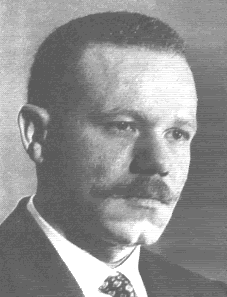 By Fragano Ledgister.
By Fragano Ledgister.The first Jamaican novel I ever read was John Hearne’s Land of the Living, which I found in my high school library when I was thirteen. I had no idea then, of course, that a few years later I’d be John’s student in a creative writing class at UWI. Nor that he would be my mentor and friend.
John wasn’t the first of the writers I admired that I would meet (that was Mervyn Morris, who, completely by accident, became responsible for my habit of ordering “café solo” as the first thing I consume whenever I land in Madrid), but he has probably had the greatest impact on me, both as someone who encouraged my writing poetry and who encouraged my entry into journalism.
Reading John’s “Cayuna” novels provides us insight into the story of Jamaica as it moved from colonialism into independence. The device of creating a fictional version of Jamaica (as Mervyn Morris says, “Cayuna is Jamaica right down to Green Stripe beer”), permitted him to explore change both in Jamaican society (the bauxite industry, the Rastafari movement), and in relation to neighbouring countries (events in Haiti, the Cuban Revolution) in a mode that allied both distance and closeness. The accents of Cayuna and the places are as Jamaican as it is possible to be, and yet separated from the real Jamaica by an infinite distance.
John enjoyed creating fictional countries. Cayuna is one of two that he shaped out of West Indian reality with his pen (he also created the Caribbean countries of Saint Pierre and Navidad, modeled on Haiti and Cuba respectively, but little action takes place in them). The other is “Abari”, based on his experiences in Guyana in the late 1950s, which appears in two novels (The Checkerboard Caper, one of the “Robin Blackmore” thrillers that he wrote together with Morris Cargill, and The Sure Salvation). Yet he could, and did, deal directly with the real Jamaica and Guyana (the latter in his short story “At the Stelling” which is included in the Independence Anthology of Jamaican Literature).
He had to tread carefully, I suspect, as a white Jamaican who did not sound Jamaican, in a society that was changing rapidly and in which the privileges, which a generation before a person in his situation would have taken for granted, were disappearing. It’s noteworthy that the only novel set in Jamaica on which his name appears as an author is his first, Voices Under the Window. The three Robin Blackmore thrillers (in which the hero is a white Jamaican planter) were written under the pseudonym “John Morris” although the authorship was well-known. When he switched political allegiance from the PNP to the JLP in the late 1970s persons unknown painted “John Hearne is a British CIA” on the walls of the Creative Arts Centre at UWI (which John ran). A rather catty mutual friend commented at the time, that the capital letters looked just like John’s.
John’s politics were never quite in step with Jamaica’s actual politics. John was a Whig gentleman whose conception of the good political order drew from the best impulses of the British liberal tradition. He had joined the PNP in the post-war period along with other liberal gentlemen who saw Norman Manley’s project as vitally necessary to the creation of a free and just society. His break with the PNP (which meant the ending of his friendship with Michael Manley), followed not, as some might think, the PNP’s close relationship with Cuba but the Orange Street fire, which he saw as a descent into thuggishness that was simply unacceptable. John was to be quickly disappointed with the JLP, which lacked the Whig tradition of the PNP.
But, deep down, John was not really a political person. He was a writer who urged his students to observe the world and write what they saw. He also represented, for those students, a bridge to the origins of modern West Indian literature as he had been a protégé of Roger Mais in the early 1950s, and Mais had encouraged his early writing. In teaching us he was, fairly consciously, acting to promote a literary tradition.
John’s work deserves to be brought back before the public eye, in particular, the four Cayuna novels which capture a time now gone forever when Jamaica seemed on the verge of wonderful things.
Fragano Ledgister, author of Class Alliances and the Liberal-Authoritarian State: The Roots of Post-Colonial Democracy in Jamaica, Trinidad and Tobago, and Surinam, teaches political science at Clark Atlanta University. He has also published poems in Focus 1983 and the Penguin Book of Caribbean Verse in English. The father of two sons, both in college, he lives in Atlanta, Georgia.
***
Tags: Caribbean Jamaican author, Jamaican writers Caribbean writers Caribbean authors Caribbean literature Books
If you haven't taken the survey on blogging and community, Wednesday is the last day. Here's the link:
***
2 comments:
What a great article ... you know, this really is such a good site. !!
(For book education addicts like me, anyway ;-))
John was a great writer and generous person.
I know I've said it somewhere else, but it was John who taught me how to write stories on one rainy afternoon. He took apart one of my stories, then gave me hints how to rebuild it, and I've been listening to him ever since--he was the foundation.
Post a Comment